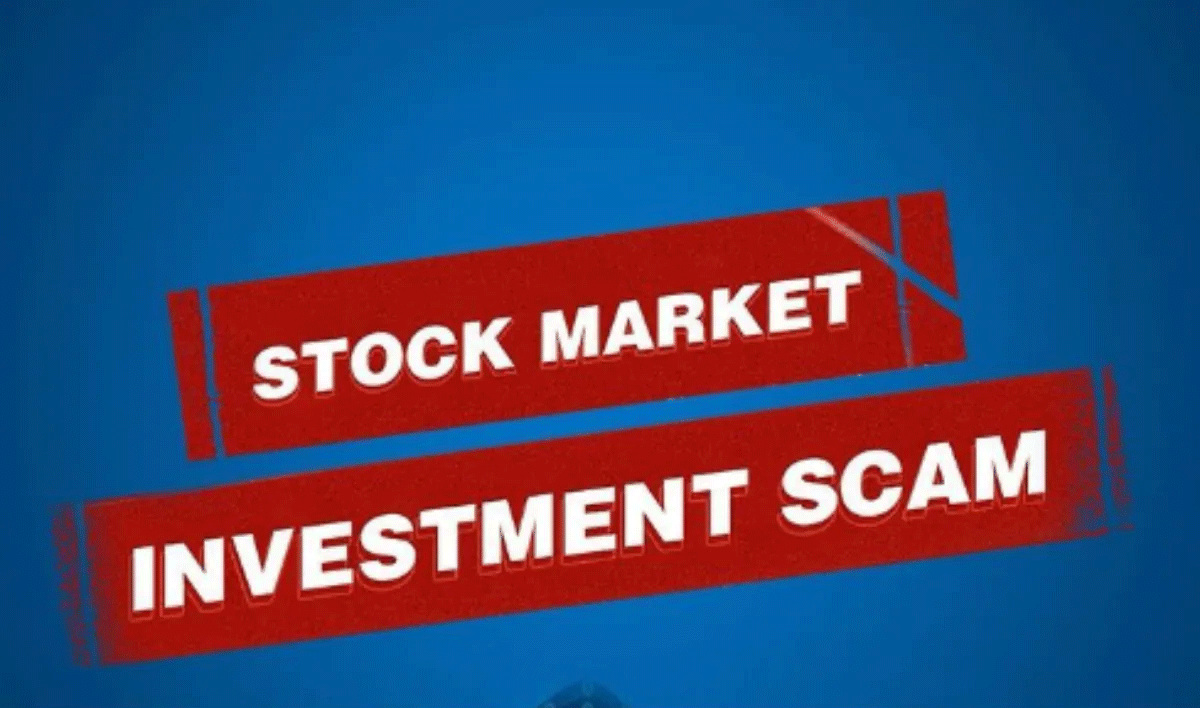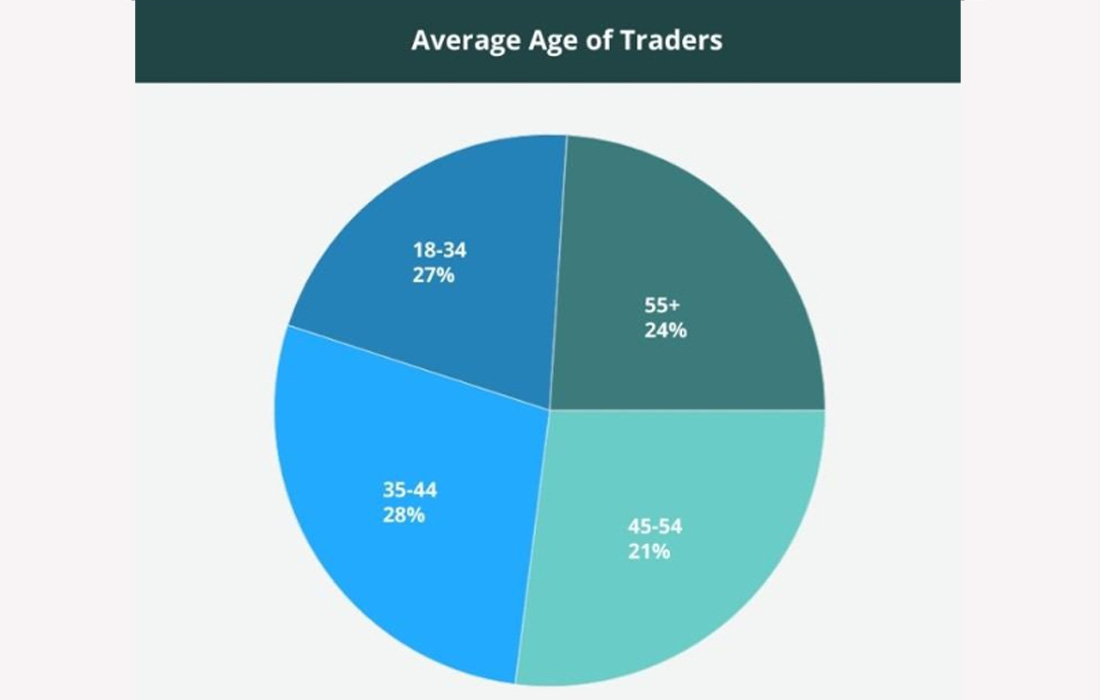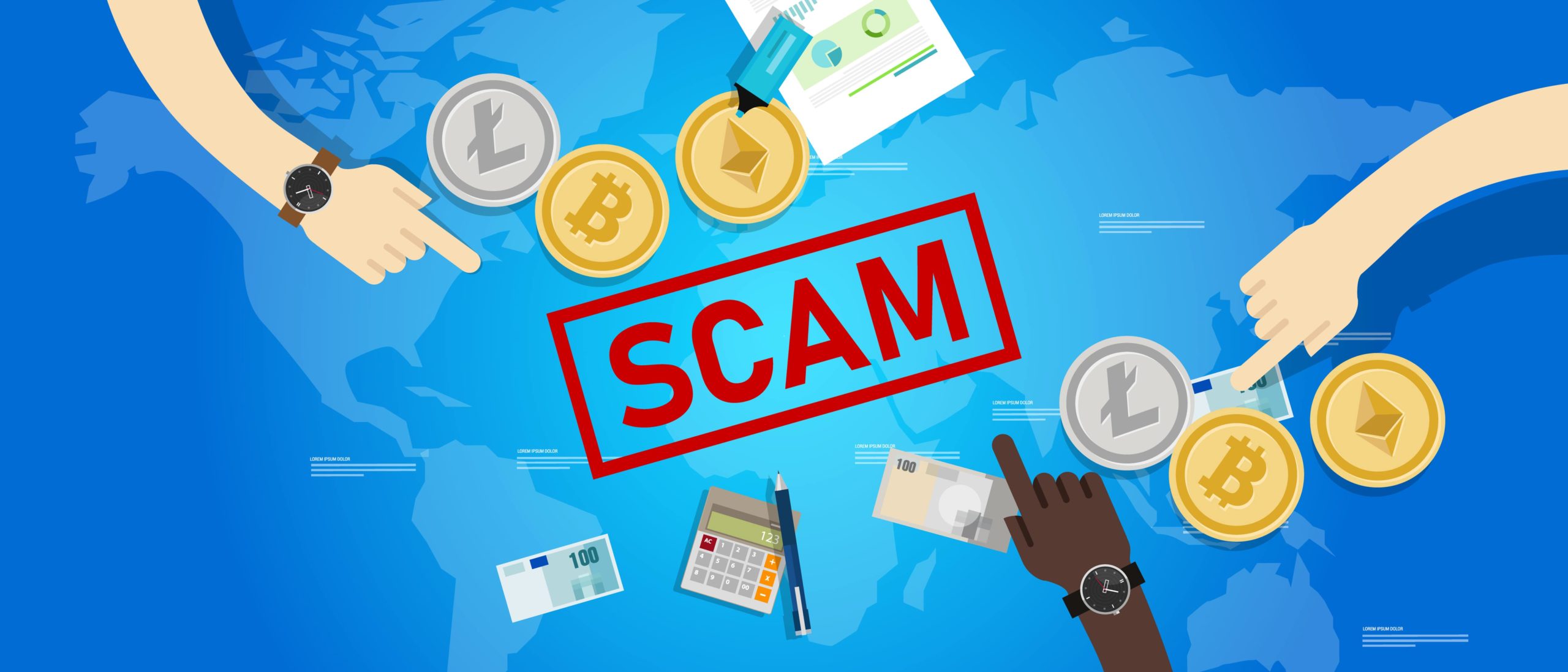Stock Trading Scams
Stock Trading Scams: How to Protect Your Investments

Stock trading scams are deceptive schemes that target investors, promising quick and significant returns on investments. These scams can result in substantial financial losses for victims and are a prevalent threat in the financial markets.

Common Types of Stock Trading Scams
Pump and dump schemes, insider trading, fake brokerage firms, and phishing scams are among the most common types of stock trading scams. Pump and dump schemes involve artificially inflating the price of a stock through false or misleading statements, only to sell off shares at a profit once the price has been boosted.
Warning Signs of Stock Trading Scams
Be wary of investment opportunities that promise guaranteed high returns with little or no risk. High-pressure tactics, lack of transparency, and unsolicited offers are all red flags that should raise suspicion. Additionally, investments that are not registered with regulatory authorities should be approached with caution.
How to Protect Yourself from Stock Trading Scams
To protect yourself from stock trading scams, conduct thorough research on any investment opportunity. Verify the credentials of brokers and investment firms, and be cautious of high-pressure sales tactics. Remember, if an investment sounds too good to be true, it probably is.
What to Do If You’ve Fallen Victim to a Stock Trading Scam
If you’ve fallen victim to a stock trading scam, it’s essential to act quickly. Contact your bank or financial institution to report the scam and seek assistance in recovering your funds. Additionally, report the scam to regulatory authorities and consider seeking legal advice to explore your options for recourse.
Stock trading scams pose a significant threat to investors’ financial security. By staying informed, conducting due diligence, and remaining vigilant, you can protect yourself from falling victim to these deceptive schemes and safeguard your investments.
Recovery options depend on various factors, including the nature of the scam and the actions taken by authorities. Contact your bank or financial institution to report the scam and explore options for recovering your funds.
Research the brokerage firm thoroughly, verify its credentials and licenses, and consult with trusted financial professionals before making any investments.
Not all investment opportunities are registered, but legitimate investments offered to the public are typically subject to regulatory oversight. Always verify the registration status of an investment before committing funds.
Trust your instincts and err on the side of caution. If an investment opportunity raises red flags or seems too good to be true, refrain from investing and report your suspicions to the appropriate authorities.
Stay informed by researching common stock trading scams, familiarizing yourself with warning signs, and seeking advice from trusted financial professionals. Additionally, consider attending workshops or seminars on investment fraud awareness.
If you have fallen victim to scams and lost money. Please reach out to us immediately. We are committed to collaborating with you to facilitate the recovery of your funds.
Our Happy Customer Says About us
Latest Articles
Table of Contents
Forex Trading Scams
Are you a victim of a Forex trading scam? Are you worried about losing your hard-earned money to fraudulent trading schemes? Have you discovered a forex trading platform with amazing trading options, a free demo account and lucrative financial assets, but it seems too good to be true?!
The forex market is a highly lucrative and fast-paced industry, but it is also a breeding ground for scams. These money-grabbing cons come in various forms, from fake trading software to Ponzi schemes, and they can leave victims in financial and psychological ruin.
For this reason, individual traders have to educate themselves on the dangers of forex trading scams to protect their finances. By understanding the warning signs, you can perform your due diligence and discern legitimate opportunities for actual profits from forex scams.
Keep reading our article to learn how to avoid forex scams and enable yourself the chance to trade forex safely. Together, we can put a stop to these fraudulent schemes and protect investors from forex trading scams.

Is Forex Trading Legitimate?
The Foreign Exchange Market, commonly known as Forex, facilitates a perfectly legitimate form of day trading. It is a decentralized and international financial market where currencies from different countries are traded against each other, thus enabling all participants to buy and sell currency pairs for profit.
These trading systems are practiced regularly by large financial institutions like banks but also by private individuals alike. To prove how popular this form of trading is, just note that forex is the largest financial market in the world. On top of it, it is also the most liquid market, with an average daily trading volume of over $5 trillion.
The main appeal of forex trading is that it allows investors to profit from fluctuations in currency prices, and it can be done anywhere in the world. You just need a computer with an Internet connection. It also offers a high level of liquidity, which means that trades can be executed quickly and at tight spreads. Additionally, all of this is available instantly! Investors don’t need to own stocks or commodities. They can start trading without much fuss.
Enter Forex Market With the Right Mindframe
Sadly, the fact of the matter is fraudulent organizations exploit all of these benefits to trick people into giving away their hard-earned money. The forex market is open to anyone, but this means it’s also open to fraud. Don’t worry, our article can help you avoid forex trading scams.
Any novice trader should take this to heart – Forex trading is not easy money, though scammers would like people to believe this. True, it can be highly profitable, but it also carries significant risk. Losing trades are common, while successful trades take up only 10% of the entire trading practice.
One should keep in mind that profitable trading requires financial knowledge, skill, great foresight, and even a bit of luck. Traders need to analyze news, financial trends, world market trends, and how they influence foreign currencies.
On the other hand, fraudsters will make forex look like easy money. They will promote amazing exchange rates and interest rates, huge profits, incredible returns on the initial investment, forex robots who trade for you, and the list goes on. We will cover the main points of common forex scams in greater detail further in the article.
What Are Forex Scams?
Simply put, forex scams refer to fraudulent schemes that prey on unsuspecting traders in the foreign exchange market. These cons come in various forms, including fake trading sites, fraudulent brokers, and even Ponzi schemes. The common factor, though, is that all of these scams promise high returns on investments with little to no risk.
Generally speaking, forex scams lure and manipulate traders into investing with unregulated or unscrupulous brokers. These organizations or individuals may promise unrealistic ROI or offer trading signals and software that are too good to be true. Sadly, traders succumb to manipulative tactics and consequently transfer money to crooks. Once the trader gives away their funds, the broker disappears with it.
Typical Forex Scam Case
Though each fraud case is individual, and victims can often find themselves in unique situations, the fact of the matter is that scammers operate on well-tried tricks and scenarios. Recognizing the mechanisms of the scheme may be the key to avoiding it, and so we’ll present you with the typical case of a forex scam. Be warned that specific situations, conditions of fraud, or your own experience may differ.
One should understand that scams influence targets much before they come in contact with them. Primarily, fraudsters create fake social media profiles, set up fraudulent trading systems, and sometimes invest in aggressive marketing across the internet. They utilize these assets to practice social engineering and create a false image of being legitimate forex companies. When eventually, someone finds the site or fake social media profile, it looks genuine and reputable.
Regardless of the form the forex scam takes, it dominantly entices its victims with the dazzling promise of an unbelievably large return on investment with a 100% guarantee. Basically, They promote instant vast wealth with no risk whatsoever. They support these claims by feigning financial expertise, state-of-the-art forex robots, insider information, and so on.
At first, the individual experiences small profits, and they might even be able to collect them. This is all for the purpose of reinforcing the insidious illusion that the forex scam is actually working. The victim believes the broker generates wealth, and so they are encouraged to invest larger and larger amounts. However, the moment the person tries to withdraw their money, they realize they can’t. They are met with withdrawal fees and transaction costs, but ultimately they realize their money is gone.
Why Do People Fall For Forex Scams?
The success of most forex scams lies in the exploitation of simple truth – almost everybody wants or needs money. Whether this is motivated by simple greed or because the individual is in a dire financial situation is irrelevant. Scammers abuse this, and they lie about how they can provide easy and quick riches. Many novice forex traders are drawn in by the promise of high returns with little risk, while some people reach for unregulated brokers because they need a steady stream of income.
Forex scams are particularly effective because they use social engineering, false marketing, and exploitative narratives to trap and control their unsuspecting targets. Fraudsters are masters of pressure tactics, emotional manipulation, and FOMO – the fear of missing out.
It’s also important to note that everyone can fall for forex scams. People have a false impression that only gullible and greedy people can get scammed. The truth is, fraudsters use every trick possible to swindle people, and it’s just a question if they find the right tactic for the specific individual.

Most Common Types of Forex Scams
Since forex scams come in various forms, it’s important to be aware of the most common types in order to protect yourself from falling victim to one. In this section, we will take a closer look at the most prevalent versions of forex fraud. Hopefully, with our article, you will be able to spot forex scams easily.
Nevertheless, be warned: scammers are continuously improving their schemes and inventing new ones so they could take advantage of unsuspecting traders. This means you should always take extra caution when searching for the right regulated broker.
Scam Forex Brokers
Out of all forex scams, fraudulent brokers are the most frequent and widespread. These brokers usually take the form of trading sites that emulate the design of legitimate platforms, and also they copy content from reputable sources. Eventually, when a victim visits the site, they believe it’s a genuine financial services agency.
Nowadays, scam brokers rarely deal solely with forex. In order to cast a wider net, they also promote other types of trading. Quite often, a single unregulated broker is commonly a forex fraud, binary options scam, and trading CFDs scheme in one. These scam brokers can also appear as fake social media profiles, thieving forex influencers, and mobile apps. An individual crook may also pose as a licensed financial advisor and contact victims directly via email or phone.
Instagram Forex Scams
Out of all forex scams, fraudulent brokers are the most frequent and widespread. These brokers usually take the form of trading sites that emulate the design of legitimate platforms, and also they copy content from reputable sources. Eventually, when a victim visits the site, they believe it’s a genuine financial services agency.
Nowadays, scam brokers rarely deal solely with forex. In order to cast a wider net, they also promote other types of trading. Quite often, a single unregulated broker is commonly a forex fraud, binary options scam, and trading CFDs scheme in one. These scam brokers can also appear as fake social media profiles, thieving forex influencers, and mobile apps. An individual crook may also pose as a licensed financial advisor and contact victims directly via email or phone.

Forex Romance Scams
In a sense, this is a mixture of two separate cons. With it, the crooks have synergized the romance scam manipulation techniques with the extortion tricks from forex fraud. Similarly to the previous type of scheme, the swindlers will create fake profiles on social media and chat up targets. They will follow the online dating scam script and shower victims with compliments and affection. When the individual develops an emotional connection with the con artist, then the forex scam part starts.
Normally, in romance scams, the fraudsters will ask for money under the excuse that it would be an investment into a non-existent relationship. In this version of the con, the crooks will entice victims to deposit money into forex fraud. They will use emotional manipulation and lie about how they are giving the victim a chance to gain huge wealth. In reality, they are guiding the targets to voluntarily give away their hard-earned money.
Boiler Room Forex Scams
Fraudulent organizations can set up call centers quite easily and cheaply. These workspaces are colloquially known as boiler rooms, and they consist of sales agents that contact targets via emails or direct calls offering forex trading services. These con people utilize high-pressure tactics and manipulation to entice victims to deposit into fraud.
In the beginning, the fraudsters are in constant contact with their targets, and they are friendly, available, and appearing as helpful. They will lie about how they are generating forex funds for their unfortunate clients. This will excite their victims with unbelievable trade ideas and an exceptional exchange rate. What’s more, they will insist that there is a tight window of opportunity for this once-in-a-lifetime opportunity.
People get hooked on the narrative, and they make deposits believing they are gaining wealth. When the individual can’t give away more funds, and they want to collect their non-existent winnings, the agent shuts down all communication. The victim is left in the dark, coping with the fact they lost their money.
Fake Forex Robots Scams
We live in an age when life-changing revolutionary software gets introduced frequently. For this reason, many people don’t think it’s far-fetched that there is a wondrous program which can predict market fluctuations. This is what scammers exploit – general ignorance of an average Joe and their desire for easy money.
Con artists will fluff up their fraudulent broker scheme by promoting a revolutionary forex robot that works as a prediction software, state-of-the-art AI, or market analysis program. This forex robot has the amazing ability to make lucrative forex trades without any risk. Of course, that is all a lie sprinkled with buzzwords. Forex robot scams present falsified results of trades to create an illusion that they are highly successful and infallible. In reality, they are smoke and mirrors in the form of colourful numbers and graphs.
Signal Sellers Forex Scams
Most people will gladly jump onto the offer of insider information or verified tips when making bets, and crooks count on this. Forex scammers will make their scheme more enticing by advertising trading signals which guarantee profitable trades. These signal sellers often claim to own high-tech algorithms or insider knowledge from central banks.
At first, the fraudsters will do their best to create an illusion that their signals are genuine and that they generate profit by presenting fake numbers to their victims. A signal seller might even charge for their fake service in the form of a monthly fee, thus causing even more financial damage. If the trader takes the bait, they are enticed to deposit as much as they can into the scam.
Forex Ponzi Schemes

One of the oldest types of financial cons from our list is a Ponzi scam, which is quite similar to a pyramid scheme or MLM fraud. It got its name after Charles Ponzi, an American con artist who became infamous for using the technique in the early 20th century. The basic principle is “Rob Peter to Pay Paul.” This means that old members of the system receive returns on their investments from the funds of the newly arrived depositors. The scheme relies on the constant inflow of new investors to provide returns to existing members. In this type of fraud, the same mechanism applies, it just uses a forex trading platform as a front.
A forex Ponzi scheme falsely claims it is generating money for investors from trading, whereas the payments are acquired from other investors. This type of scam often targets individual investors and is commonly promoted through social media or online ads. They utilize pressure tactics and emotional manipulation to make individuals feel like they are missing out on an opportunity of a lifetime.
More importantly, forex pyramid schemes almost always contain affiliate programs. This means that victims are incentivized to recruit more people. Since they are manipulated into believing the scam produces exceptional ROI, they bring new targets willingly. Unfortunately, they commonly expose family members and loved ones to fraud.
Ponzi schemes are inherently unsustainable and are bound to collapse. They are illegal in most countries, and once the scheme collapses, the majority of investors lose their money.
9 Forex Scam Warning Signs
Fraudsters exploit a wide range of weaknesses to execute their scam. They don’t care about age, gender, or people’s backgrounds; they will utilize anything they can to extort money. That is why Forex scams are prevalent and can happen to anyone. What’s worse, con artists constantly find new methods of tricking people.
For this reason, it is important to constantly educate yourself and be aware of the warning signs. This way, you can proficiently perform your due diligence and avoid scams. This section will list and explain the most common red flags to watch out for when considering investing in the forex market.
Bonus Trading Credit and Bonus Money
This is a common tactic to entice individuals to open an account and invest their money. Scammers offer bonus trading credit or fake money for opening an account, but in reality, these gifts are just a way to lure in unsuspecting victims. These funds are non-existent, while the victim deposits real money.
The Broker Gives Instructions and Pressures into Trades
Legitimate forex trading platforms are legally forbidden from providing instructions and depositing money for the trades in their clients’ names. However, fraudsters will utilize a range of manipulative tactics, including pressuring their victims and creating FOMO, so the targets would willingly give away their money.
The Broker Gives Instructions and Pressures into Trades
This is a common tactic to entice individuals to open an account and invest their money. Scammers offer bonus trading credit or fake money for opening an account, but in reality, these gifts are just a way to lure in unsuspecting victims. These funds are non-existent, while the victim deposits real money.
Automatic Trades
Fraudulent forex brokers advertise software and systems that can make automatic and risk-free trades. Traders don’t have to do anything, and the platform makes them rich. If this sounds too good to be true, it is. No regulated broker can allow such trades, so stay away from them.
The Broker is Unregulated
In order to conduct their business, all trading platforms must be regulated by the official institution of the country they are operating in. This is why all scam brokers are unregulated. Be warned, the site might falsely present they have official stamps of approval. Don’t trust what you see on the platform, check the name of the broker directly on the official page of the regulatory institution.
Steep Transaction Fees and Withdrawal Charges
Various scams impose huge charges in case the target wants to collect their money or earnings. This is a typical tactic to discourage victims from accessing their funds. This way, they can go through long periods depositing more and more money without realizing it is being stolen. Be wary of any broker that makes it pricey to withdraw money.
Difficulties with Withdrawal
Similarly to previous scam tactics, this is also a way of discouraging victims from trying to collect their funds. Truth be told, some international platforms do require a day or two to execute transactions. However, if an individual waits several days or weeks to receive their own money, that’s a huge red flag.
Online Warnings
Luckily, there are many online spaces where scam victims can leave their complaints and experience. Visit forex forums, official anti-scam sites, anti-fraud social media groups, and pages of regulatory bodies. Look for reviews, testimonials, and comments. Chances are there will be either official warnings or victims’ complaints. To help you, we provide the list of official government sites that issue warnings against scams
- USA – Commodity Future Trading Commissions
- Britain – Financial Conduct Authority
- Australia – ACCC ScamWatch
- South Africa – Southern African Fraud Prevention Service
- Canada – Canadian Anti-Fraud Centre
- New Zealand – New Zealand Scamwatch
Only Paid in Cryptocurrency
Since crypto can be transferred across the world shortly, and also wallet holders can stay perfectly anonymous, scammers prefer to extort funds in cryptocurrency. That’s why, today, multiple schemes function as cryptocurrency scams. You should avoid a forex broker which solely accepts deposits in popular Cryptocurrencies like Bitcoin or Ethereum.
Fake Celebrity Endorsement
Slap a celebrity face on a product and it sells more: Scam brokers exploit this. It might seem like a simple trick, but forex trading scams often use pictures of famous people to deceive targets. Crooks will fabricate how the celebrity is promoting or using their scam broker. As a result, many people, believing they are following the footsteps of their favourite star, deposit their money into a scam broker.
FAQ
A letter of intent is a non-binding document written and signed by one party to another stating a willingness to do business. No party is obliged to do anything said in the document unless agreed upon within the letter. Before signing any document, you need to consult an attorney. A letter of intent speaks of a plan to do business and not a commitment or obligation to do it.
Note that your signature on a valid LOI can be considered a contract. However, any document you sign that intends to unwittingly involve you in a crime is regarded as a valid document.
First, know that the scammer is trying to establish control. They want to make you feel obliged to honor your end of the bargain because a written commitment has more effect than a verbal one.
The fraudster is likely not to give you concrete answers about the investment because they want you to sign the document. However, once you do, you are in a vulnerable position because you have empowered the fraudster. Also, you have given your address, telephone number, fax number, and whatever other numbers he may have stated are required.
Fraudsters do not like to waste time, so they ask for proof of funds to ensure they are dealing with a real investor and not an intermediary. They also do this to intimidate you into proving your capability to be taken seriously.
So, once you have given him proof of funds, he is secure that there are assets to steal. Additionally, you have provided him with the name of your bank and maybe even an account number. So now he has access to your funds.
Remember that nothing matters when dealing with fraudsters, not even fax copies of alleged transactions. Know that the fraudster will pull all the stops to convince you that the investment is legit.
By the time the fraudster agrees to introduce you to the so-called Trader, you have been rigorously prepared. You have been told that this is a privilege awarded to the lucky few, that the ‘Trader’ does not waste his time with just anyone. You have been persuaded that you are extra-extra special. This is a very effective form of brainwashing used by fraudsters. It works because everyone wants to feel special, never mind extra-extra.




